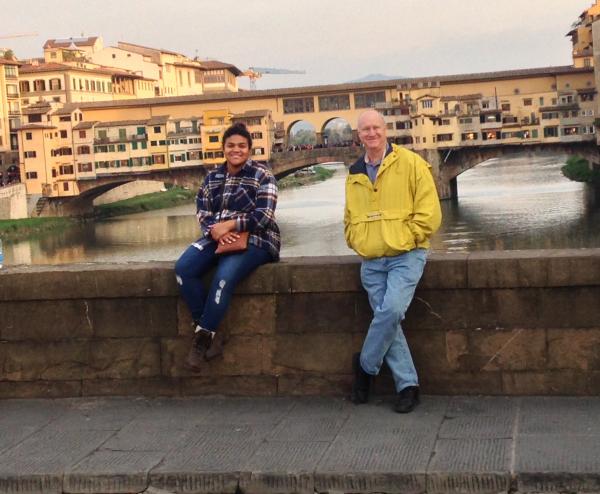While TripAdvisor does have some well-ranked choices in its "Top Things to Do" lists, anywhere deemed “touristy” is not where you will find the local people going about their day-to-day activities. Instead, experiencing life from a local's perspective means immersing yourself in a new city or country and involves learning about how people live their lives. You won’t get that experience by searching on the Internet for what are the most popular and “must see” attractions.
The way to learn and see how people live is by talking to them. Depending on where you are travelling, you might be surprised just how inviting people will be. People like to talk about themselves and where they are from, and if you are interested, then they are too. Try to go off the beaten path when you go on your next trip, and see where the adventure and the locals take you.
Here's a few ways to get started:
Make local friends.
Meeting people is the number one way to learn the ins and outs of a new place. Friends in new places might just even go with you on your adventures, or show you some unique spots in town. They can even tell you what not to do and what items on your list aren’t all they were cracked up to be. Most importantly, they’re a reason to come back and visit.
Visit destinations outside of the urban centres.
If you decided to study in Berlin or Munich, why not go to a different city in Germany as well? Seeing one city isn’t going to inform you about the whole country, so take a day trip to a quieter city or the country-side and see if it gives you a better perspective on German culture.
Seek out city blogs written by locals.
Look around for a blogger that is from the city you are in. I found one who does a weekly newsletter on the current events for the city that I was studying abroad in! Locals like to give advice on the non-touristy things to do, so there are bound to be some people writing about them as well.
Learn the language.
Meeting once a week doesn’t have to be just about learning how to speak a new language, but it can be able learning about the culture as well. Try finding a buddy or exchange program that pairs you with a native speaker who is willing to learn English. Learn their language but also learn about their life as well. You never know what you will find out!
Get lost in the city.
Go for a walk and keep walking until you don’t know where you are. Now look up and see what is around you. Finding the hidden gems of a city involves getting a little lost. Exploring doesn’t have to coincide with using a map or your phone to get around. You can unplug for a bit and just wing it. This is always such a fun way to see what life is truly like in a city because you aren’t looking for something specific. You are just observing whatever you see at that point in time.
Add this article to your reading list





